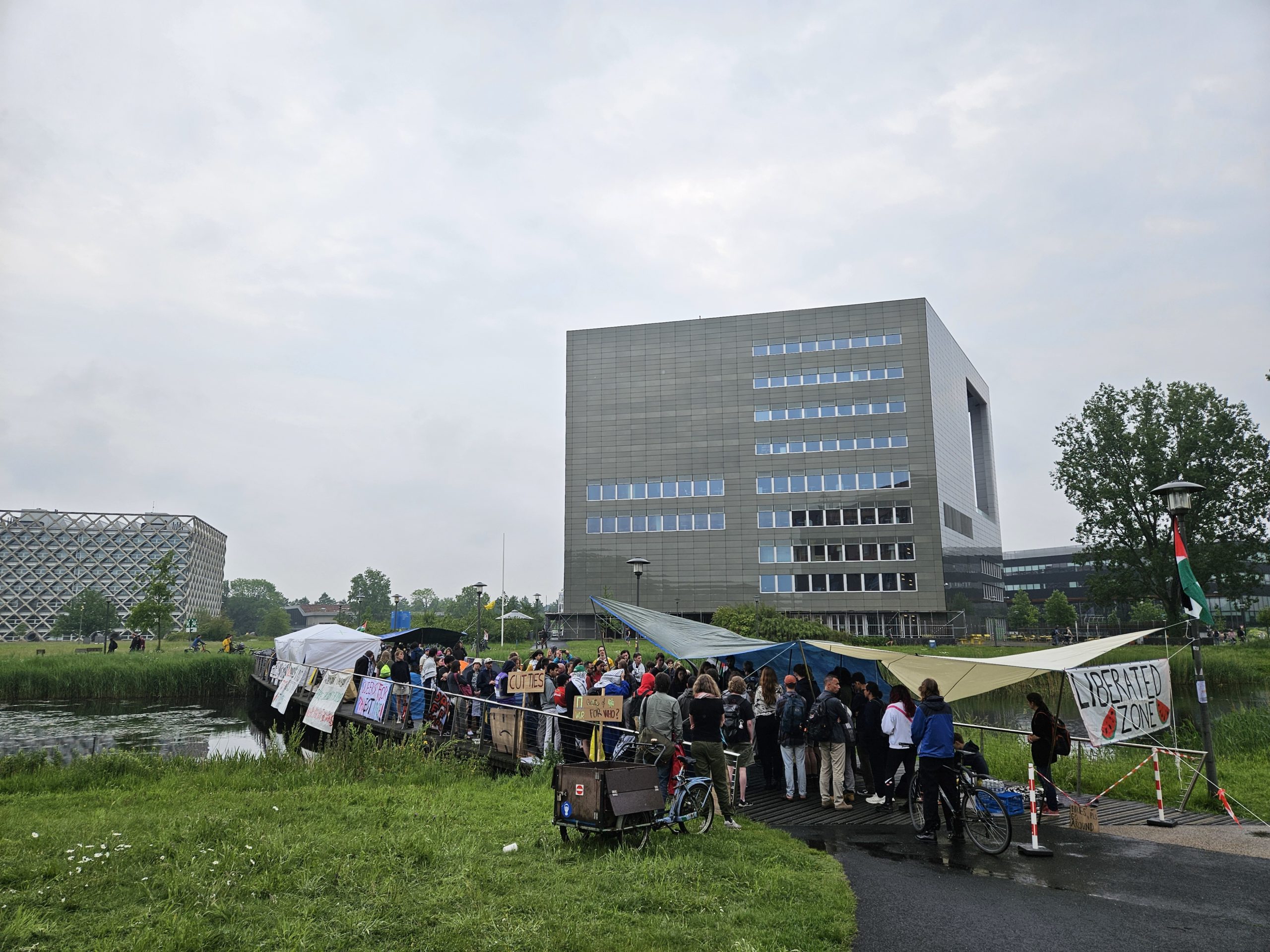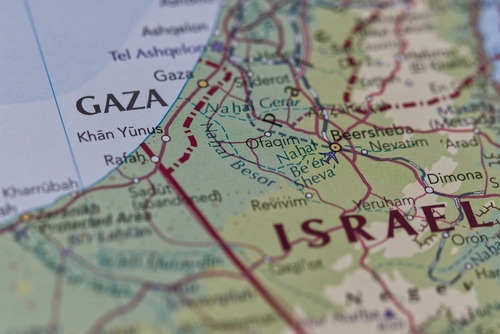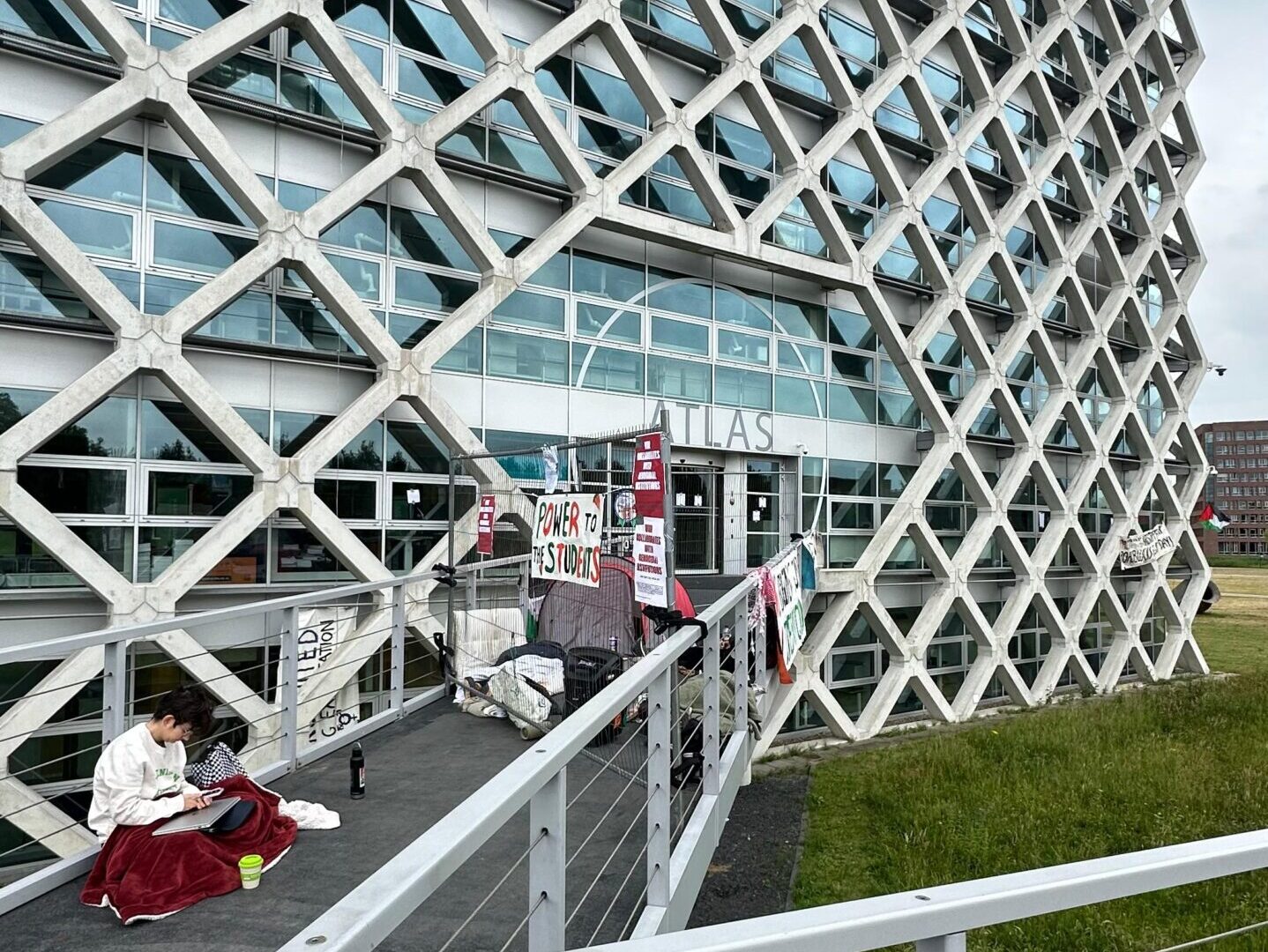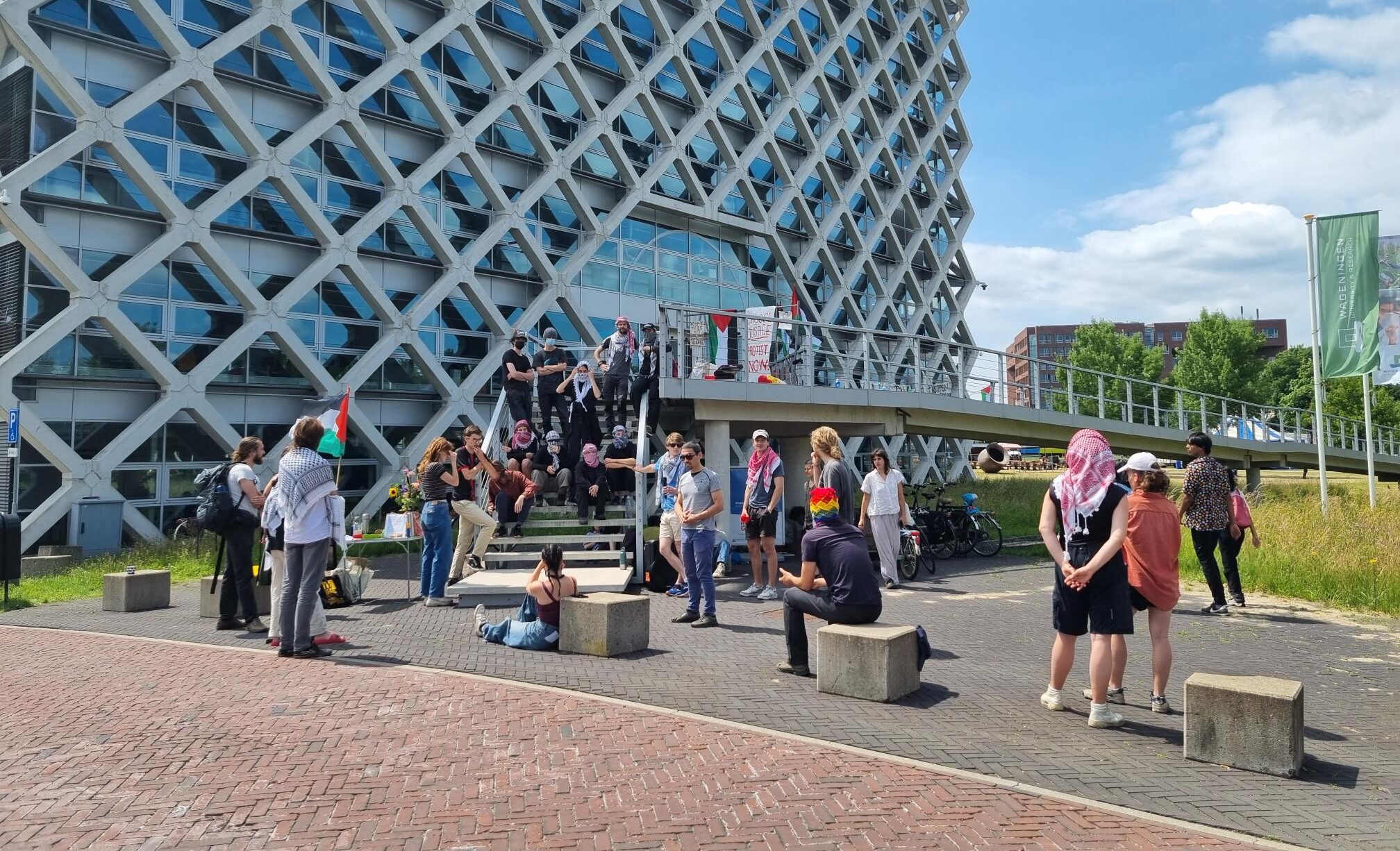Text Roelof Kleis and Willem Andrée
The occupation of the bridge between Forum and Orion by pro-Palestinian activists has entered its fourth week. There is no end in sight.
The activists’ aim is clear: they want WUR to break its links with Israeli universities and science institutes. But WUR’s Executive Board has no intention of doing this. The two sides have been talking to one another for three weeks but so far that has not resulted in anything more than some minor concessions. WUR published a list of the Israeli institutions it works with and it will be making two scholarships available for students from conflict zones.
The occupation of the bridge is part of a wider trend. Students and staff are increasingly calling on WUR to take a stand on social and political topics. The Executive Board’s response is always the same: it is not appropriate for a research and education institution to speak out on such matters. WUR assesses collaborations and projects against its Principles of Cooperation. That assessment doesn’t allow for a generic boycott.
The stance is not only a matter of principle but also pragmatic. It avoids complex ethical discussions about which countries or regimes it would be acceptable to work with. The war in Gaza is not the only conflict in the world and the Palestinians are not the only people being oppressed.
Report to the police
The occupation of the bridge is good-natured, without the destructiveness that was seen in the protests in Amsterdam. But the tone seems to be getting more combative. In violation of the agreements, there was a blockade of the F&A Next conference in Omnia, and activists entered Forum and Atlas last week. The use of a slogan that equated Zionists with Nazis even prompted the Executive Board to report the incident to the police as group defamation.
There is also the question of how broad the support is for a boycott. In accordance with the agreements with the Executive Board, the encampment on the bridge is small in scale. About 300 students and staff joined the walkout on 13 May and the demonstrations usually get around 50 people. The vast majority are staying silent. The Board undoubtedly draws strength from this fact in its decision to stick with its stance.
Another question is how long the occupation will go on for. As long as the demonstrators keep to the rules, the Executive Board will see no reason to intervene. The activists have shown they have plenty of stamina. Even so, their ultimate goal of breaking all links with Israeli institutions seems a bridge too far.
Here you can find a timeline and updates.

 Photo Resource
Photo Resource 


“The stance is not only a matter of principle but also pragmatic. It avoids complex ethical discussions about which countries or regimes it would be acceptable to work with.” – to me this is a key point: it is a university’s role in society to enter exactly these complex discussions (and to act upon them), indeed not only in this but also other cases. If we are working for “a quality of life”, in itself a normative commitment, then avoiding the ethical implications of our actions is simply not an option.
“The stance is not only a matter of principle but also pragmatic. It avoids complex ethical discussions about which countries or regimes it would be acceptable to work with. The war in Gaza is not the only conflict in the world and the Palestinians are not the only people being oppressed.”
Echoing Lucie, I find this paragraph to be deeply shocking. At best, the authors imply we should not help Palestinians because then we would also have to help other oppressed people. At worst, it displays a deeply ingrained Eurocentric, neo-colonial and frankly racist sentiment that we should reject fully. The platitudes of decolonisation, diversity, equality etc that this university purports to stand behind ring absolutely hollow.
The board’s dialogue versus boycott argument is built on three fallacies.
First Fallacy: The Nature of the Academic Boycott
The boycott is not about ending conversations. On the contrary, activists in the academic boycott movement are creating and nurturing spaces for discussions and debates, especially about the power dynamics that lead to violence, dispossession, and displacement. This dialogue transcends the simplistic colonizer-colonized framework and aims for a broader goal: social justice.
Second Fallacy: Dialogue and Boycott Are Mutually Exclusive
Dialogue and boycott are not mutually exclusive. It is possible and necessary to explore the roots and causes of violence, dispossession, and displacement while also upholding institutional responsibility. In the case of Israel, this means severing ties with institutions complicit in illegal occupation and apartheid.
Third Fallacy: Misunderstanding Academic Freedom
Academic freedom is not the liberty to do whatever one wants. It is the freedom for scholars and students to pursue knowledge and critically evaluate dominant perspectives without interference from authorities. This freedom is compromised in Israel. In her book, ‘Towers of Ivory and Steel’, Jewish-Israeli author Maya Wind illustrates how academic institutions in Israel suppress critical knowledge production and become instruments of occupation. The Hebrew University of Jerusalem (HUJI) exemplifies this, with parts of its campus built on illegally occupied land, effectively turning the university into an outpost for Palestinian dispossession and displacement.
By maintaining its relationship with Israeli institutions, especially HUJI, the executive board of Wageningen University & Research creates a false dichotomy between boycott and dialogue, undermining academic freedom rather than supporting it.
The protesting students urge the executive board to sever ties with Israeli institutions and align WUR’s mission with the goal of contributing to the quality of life for all, not just a select few, while destroying that of others.